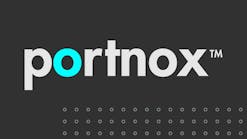The use of near field communications-enabled smartphones as access control credentials is a major topic among security professionals. For those not familiar with the technology, NFC provides simplified transactions, data exchange and wireless connections between two devices that are in close proximity to each other, usually by no more than a few inches. Many smartphones currently on the market already contain embedded NFC chips that can send encrypted data a short distance to a reader. NFC technology is being added to a growing number of mobile handsets to ultimately enable mobile payments as well as many other applications.
Ingersoll Rand’s aptiQmobile web-based key management system allows NFC-enabled smartphones to grant access to buildings and dorm rooms, as well as partake of other badge ID applications. To turn NFC-enabled smartphones into an access control credential - allowing people to use their smartphones to enter buildings in the same way they present a badge ID - users simply download the aptiQmobile app to their phone. Then, their access control administrator uses the aptiQmobile cloud service to send a secure mobile credential directly to the user’s phone. Once the mobile credential is downloaded, users open the app and tap their smartphone to the reader in the same way they use an ID card.
In previous NFC pilot programs at Villanova University and the University of San Francisco, users enclosed their iPhones in a case to create the NFC capabilities. With the newest version of aptiQmobile, students and employees can now use Android phones as well, without the need for a unique case. Employees are doing just that in a current trial at the corporate campus of Heartland Payment Systems, the fifth largest payments processor in the U.S.
University of San Francisco students have embraced aptiQmobile, preferring the convenience of using their phones to digging for a card. Such convenience is important to the administrators but equally important is the security of using their existing contactless credentials, keeping transactions secure. The combination makes for a first-rate experience for both students and staff.
Villanova University has found that using smartphones as badges saves time that can be better spent on other issues. Assigning the credential to the students’ phone takes less work than printing and delivering a badge and, since students are very protective of their phones, this should lead to a greatly reduced replacement rate. If a phone is lost or broken, a new ID can be reissued to the new phone without even having the students come into the office.
An educational session covering all three pilots, "The Future of Near Field Communication (NFC) Enabled Mobile Devices," will be held at ASIS on Tuesday, Sept. 24 at 4:30 p.m. in room S501d of Chicago’s McCormick Place. Fred Emery, vice president and general manager at Heartland Payment Systems-Campus Solution and Shane Bates, CPP, director of security cloud strategy at LMC Consulting Group-Microsoft Global Security, will discuss how NFC technology is being used, from access control to vending applications, as well as lessons learned from implementing such a system on university and corporate campuses.
Introduced in April, the aptiQ Developer Network, which already consists of eight access control software companies, is providing a channel-friendly, customer-centric way of bringing NFC to market, letting aptiQmobile providers become the innovative suppliers of this convenient way to use a mobile access control credential. Furthermore, Ingersoll Rand just announced that it has been approved as a “Silver partner” in the Samsung Enterprise Alliance Program (SEAP). SEAP was created as an ecosystem for Samsung to provide better support to its various partners. Enterprise solutions, such as aptiQmobile, are an integral part of Samsung’s go-to-market strategy.


